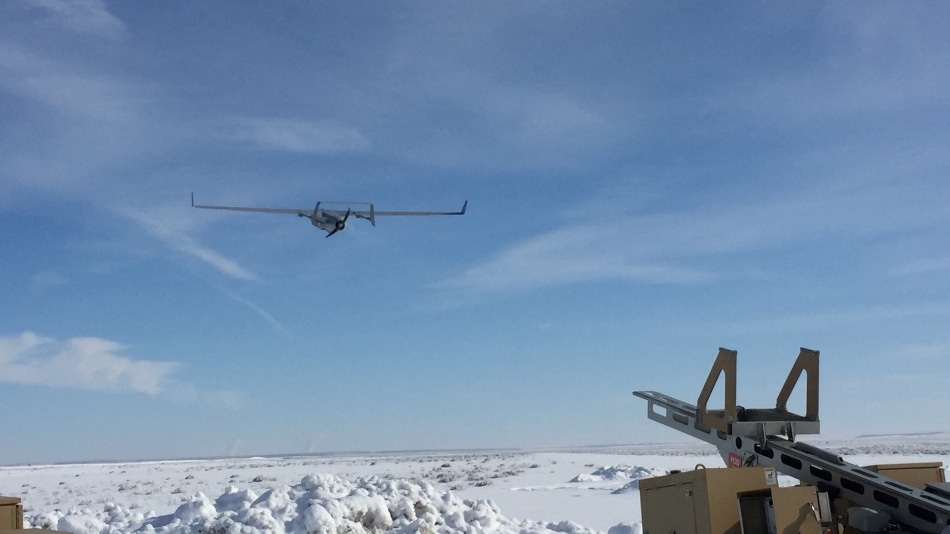Feb 16 2017
Logos Technologies and Insitu, a subsidiary of The Boeing Company, are proud to announce the successful initial flight test of the Redkite wide-area sensor aboard the Integrator small tactical unmanned aircraft.
 Integrator Launch with Redkite Sensor. Credit: Logos Technologies
Integrator Launch with Redkite Sensor. Credit: Logos Technologies
Conducted early this month in Boardman, Ore., the test marks the first time a wide-area motion imagery (WAMI) system has been carried in the internal payload bay of a small UAS.
“In the past, we’ve mounted podded versions of our lightweight WAMI systems to rotary- and fixed-wing aircraft,” says John Marion, president of Logos Technologies. “Now, thanks to further reductions in weight, we can easily fit a Redkite inside a tactical unmanned platform, as demonstrated with our recent flights on the Insitu Integrator.”
Despite its compact form, Redkite can image a city-sized area (over 12 square kilometers) all at once—detecting, tracking and recording all significant movers within the scene. It also stores up to eight hours of this geo-tagged mission data on onboard solid state drives (SSDs).
While the WAMI sensor is flying, multiple users on the ground can select real-time and/or historical video feeds within its expansive coverage area and view them on desktop screens, tablets and other mobile devices. Redkite can transmit up to 10 unique views to hundreds of users at one time.
“Insitu is pleased to collaborate with Logos to provide yet another way for our customers to get the critical information they need,” said Pete Kunz, chief technology officer for Insitu. “Integrator with Redkite enables an even broader set of missions to aid the warfighter in a complex operational environment.”
In addition, the new sensor weight (under 30lbs) means that Redkite can potentially be integrated with even smaller unmanned aircraft in the future, notes Marion.
Logos Technologies will be unveiling a full-size model of the new internal payload version of Redkite at the International Defence Exhibition and Conference (IDEX) 2017, held February 19-23 in Abu Dhabi, in the United Arab Emirates.